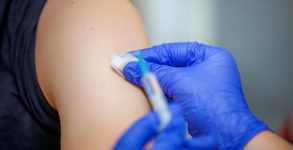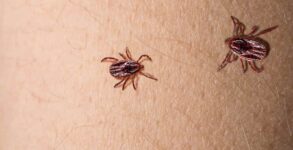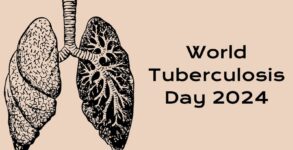Measles outbreak across the world has become the latest and most pressing public health emergency. WHO has now confirmed that epidemic of measles in Madagascar has caused more than 900 deaths since the outbreak began in September.
USA, which had actually eradicated the disease, is battling with high numbers of cases. The state of Washington has now declared a state of emergency and the states of New York and Texas are battling with huge outbreaks. Japan too is seeing its worst outbreak in years. It is now being reported that more than 130 people, mainly children, have died and 8,443 others have fallen ill in the Philippines during a measles outbreak that has been largely blamed on nationwide fears about vaccinations, despite mass immunization drive that began recently.
Measles outbreak has now affected all the regions of the world with surges in Americas, the Eastern Mediterranean region and Europe. In Europe, according to the WHO, the measles has reached the highest levels in two decades. In Latin America it is partly attributable to an economic calamity afflicting Venezuela, where many public health services have stopped or are mired in dysfunction. According to the WHO anti-vaccine skepticism, conflict and poor access fuelled a 50% increase in measles cases last year. The UN health agency said the resurgence was happening at a global level, including in wealthy nations where vaccination coverage has historically been high. Katherine O’Brien, WHO’s director of immunisation and vaccines said, “Our data is showing that there is a substantial increase in measles cases. We’re seeing this in all regions… We’re having outbreaks that are protracted, that are sizeable and that are growing. This is not an isolated problem.”
Dr. Seth Berkley, chief executive officer of Gavi, the Vaccine Alliance, an advocacy group that promotes vaccination in lower-income countries has said, “Complacency about the disease and the spread of falsehoods about the vaccine in Europe, a collapsing health system in Venezuela and pockets of fragility and low immunization coverage in Africa are combining to bring about a global resurgence of measles after years of progress.”
The latest global measles epidemic is being attributed mainly to vaccine hesitancy – resistance to take vaccines due to misinformation and myths. In fact the WHO has defined vaccine hesitancy as one of the top ten global health threats of 2019. Some of these groups are religious fundamentalists while others are mainly online anti vaccine communities who have increased their influence largely through social media. In fact Japanese media has reported that a large number of cases can be traced to a religious organization called Kyusei Shinkyo, after a number of people were found to have contracted measles after attending a workshop held by the group in the city of Tsu late last year. According to its website, the group, founded in 1970, believes that “medicine can cause disease” and believes in treating illnesses through what it calls “the Divine Light.” Later the organization issued a statement apologizing for its responsibility in the outbreak and encouraging people to cooperate closely with the vaccine authorities.
In fact, American teenagers are now taking to Reddit, a vast online forum to take advice on how to get vaccinations that their anti vaccine parents exempted them from. The most missed vaccine and also the most controversial has incidentally been the MMR vaccine for Measles, Mumps and Rubella. The controversy can be traced to now widely discredited, 20 years old paper by Andrew Wakefield that argued that MMR caused autism in children. The paper was later retracted but many people still believe his claims and continue to opt out of the vaccine. Many are now arguing that recent resurgence in measles can be attributed to anti-vaxxers continual propaganda of this paper that has done immense damage to immunization rates.
Nipah virus outbreak in India: What do we know so far?
The recent, completely avoidable outbreak is a sign of rising vaccine skepticism and can be very dangerous. Dr. Heidi Larson, Director of the Vaccine Confidence Project at the London School of Hygiene and Tropical Medicine said, “It’s very serious. Historically measles outbreaks go up and down but this is a pretty dramatic increase.” World leaders have fueled this mistrust. In France, Marine Le Pen, who leads the far-right National Rally, has opposed an expansion of the list of mandatory vaccinations, while in Italy, members of the Five Star Movement have previously suggested vaccines were unsafe. In the US Donald Trump expressed skepticism over vaccines and invited Wakefield to his inaugural ball. Closer home, HPV vaccine introduction in the UIP has been out on hold amidst objections from the Swadeshi Jagran Manch, an affiliate of the Rashtriya Swayamsevak Sangh.
Vaccines have time and again proven to be safe, cost effective and efficient ways to control the spread of diseases. Immunization drives have proven effective in eradicating diseases like polio and smallpox and to a large extent diseases like tetanus and whooping cough. New vaccines are now available for dengue, swine flu and many are under development like for malaria and HIV. Yet vaccine mistrust can severely damage health programmes and lead to resurgence of diseases as seen in the worldwide measles outbreak. Information, engagement with parents and quick dispelling of rumours can go a long way in better immunization coverage and public health outcomes.


















